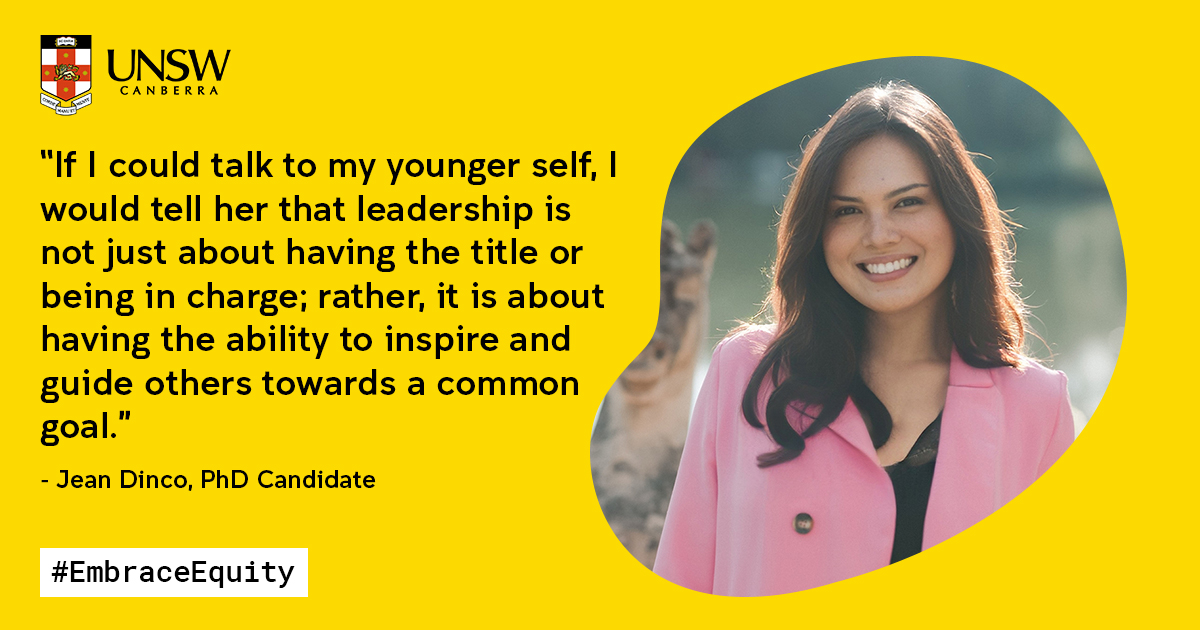International Women’s Day 2023: Jean Dinco
Meet UNSW Canberra cyber PhD candidate and University of Melbourne data specialist, Jean Dinco.
Meet UNSW Canberra cyber PhD candidate and University of Melbourne data specialist, Jean Dinco.

Meet UNSW Canberra cyber PhD candidate and University of Melbourne data specialist, Jean Dinco. A passionate human rights activist and advocate for the meaningful involvement of women in decision-making processes, Jean has been recognised as one of the top 100 Women in Artificial Intelligence Ethics globally in 2022, and Global Goals Leader by Vanity Fair in 2023.
The most common answer you would hear for this question relates to Sheryl Sandberg’s idea of ‘leaning in’—which is completely flawed. Leaning in essentially places the burden of change solely on the efforts of individual women without addressing systemic barriers such as unequal pay, a lack of workplace flexibility, and biases.
If we really want to overcome these challenges, we have to focus not on individual solutions but rather on collective action in creating systemic change.
For instance, joining a union can help workers address and overcome challenges in male-dominated industries. Through unionising, individuals can have a stronger voice in negotiations with their employers and bargain for better wages, benefits, and working conditions by banding together with other workers.
Simple answer is I don’t. But let me tell me why. I believe that we should stop romanticising resiliency because there is nothing inspiring about it. Not only is it harmful but it also helps to perpetuate a toxic culture that expects individuals, particularly women, to continually endure difficult circumstances without addressing the underlying causes of our struggles. The hyperfocus on resiliency discourages people from addressing the root causes of the problem.
Instead, we ought to centre our efforts on establishing a society that proactively labours towards the eradication of the structural obstacles and injustices that stand in the way of women flourishing and realising their full potential.
If I could talk to my younger self, I would tell her that leadership is not just about having the title or being in charge; rather, it is about having the ability to inspire and guide others towards a common goal. I was brought up in a society in which one's position is given more weight than anything else.
It wasn't until fairly recently that I came to the conclusion that true leaders do not necessarily need to hold positions of authority all the time. After all, power is an illusion that was concocted to legitimise existing social structures in our society.
See more International Women’s Day profiles:
FLTLT Kaylee Verrier
Dr Fiona Buick
Emma Baulman
Davina Mansfield